Introduction: Why Paper Cup Manufacturing is a Golden Business Opportunity
The world is changing fast, and one of the most significant shifts we’ve witnessed in the past decade is the move toward eco-friendly, single-use packaging solutions. Governments worldwide are banning plastics, consumers are more environmentally conscious than ever, and businesses are actively seeking alternatives that don’t harm the planet.
This global transformation has opened the doors for entrepreneurs to step into the paper cup manufacturing industry—a market that’s expanding at an incredible pace. Whether it’s for cafes, tea stalls, corporate offices, airlines, or hospitals, the demand for paper cups is rising each year.
Here are some quick facts to show the potential:
- The global paper cup market is valued at over $10 billion (2024) and is expected to grow steadily over the next decade.
- The food & beverage industry is the largest consumer of paper cups.
- In India alone, the market is growing by 12–15% annually, thanks to the ban on single-use plastics and increased consumption of beverages on the go.
For entrepreneurs, this means a profitable, sustainable business opportunity. But as with any venture, success lies in careful planning, smart investment, and most importantly—choosing the right paper cup making machine manufacturer.
In this guide, we’ll walk you through the 10 essential steps to start your own paper cup manufacturing business and show you why partnering with a trusted brand like SBS Machinery can make all the difference.
Step 1: Research the Market and Demand
Before investing in any manufacturing business, market research is your foundation for success.
Understand Customer Segments
Paper cups are widely used across:
- Cafes & QSR Chains – Starbucks, Cafe Coffee Day, McDonald’s.
- Tea Shops & Small Restaurants – everyday hot beverage usage.
- Corporate Offices & Canteens – daily staff requirements.
- Airlines & Railways – disposable cups for passengers.
- Hospitals & Events – hygienic single-use cups.
Each segment has different requirements for cup size, quality, and branding. For example:
- 90ml cups for tea/coffee.
- 150ml–200ml cups for cold drinks.
- Special ripple cups for premium beverages.
Study Competitors
- Who are the leading suppliers in your region?
- What is their pricing strategy?
- Do they offer custom branding?
Understanding gaps in the market will help you create a competitive advantage.
Pro Tip: Look for areas where demand is rising but supply is limited—such as suburban cafes or corporate hubs.
Step 2: Create a Business Plan
No business succeeds without a roadmap. A business plan gives clarity, attracts investors, and keeps you on track.
Key Components of Your Plan
- Investment Costs:
- Land/Space: 500–1000 sq. ft. (for a small unit).
- Machinery: ₹8–20 lakh depending on model.
- Raw materials: PE-coated paper rolls, bottom reels.
- Labor: 5–10 workers initially.
- Production Capacity:
- A high-speed SBS Machinery paper cup machine can produce 3,000–5,000 cups per hour.
- With an 8-hour shift, that’s nearly 25,000–40,000 cups daily.
- Cost vs. Revenue Example:
- Cost to produce 1,000 cups: ₹600–₹800 (depends on paper quality).
- Selling price of 1,000 cups: ₹1,000–₹1,200.
- Profit margin: 30–40%.
- Target Customers:
- Wholesalers, retail chains, cafes, distributors.
ROI Case Study
A small unit investing ₹15 lakh in machinery and setup can expect to recover the investment in 12–18 months, depending on production volume and market demand.
Step 3: Register Your Business and Get Licenses
Legal compliance is essential to build trust with buyers and avoid future issues.
Mandatory Registrations
- Business Registration: Sole Proprietorship, Partnership, LLP, or Pvt Ltd.
- GST Registration: For taxation and interstate sales.
- Factory License: Required for manufacturing units.
- Pollution Control NOC: Paper cups are eco-friendly, so this is usually fast-tracked.
- BIS Certification: (Optional, but adds credibility).
Pro Tip: Work with a company registration consultant for faster processing.
Step 4: Choose the Right Location
The location of your manufacturing unit impacts both operational efficiency and profitability.
Ideal Location Requirements
- Proximity to raw material suppliers – reduces transport costs.
- Good connectivity – for easy distribution to customers.
- Electricity & water supply – essential for machines.
- Space – at least 500–1000 sq. ft. for a small unit, expandable as business grows.
Example: Setting up near industrial hubs or near metro cities like Delhi, Mumbai, or Bengaluru ensures easy access to both suppliers and buyers.
Step 5: Select a Trusted Paper Cup Making Machine Manufacturer
This is the most critical decision in your journey. Your machine determines:
- Production speed
- Cup quality
- Operational costs
- Long-term ROI
Types of Paper Cup Machines
- Semi-Automatic Machines: Affordable, good for small setups.
- Automatic Machines: Higher speed, consistent quality.
- High-Speed PLC Machines: Best for scaling and large units.
Why Choose SBS Machinery?
- High Production Capacity – up to 5,000 cups/hour.
- Durable Engineering – long machine life, minimal downtime.
- Versatility – supports multiple cup sizes and designs.
- Low Maintenance – cost-effective over time.
- After-Sales Support – training, spare parts, technical help.
Real-World Example: A small entrepreneur in Pune scaled production from 25,000 to 1,00,000 cups per day within 6 months using SBS Machinery’s automatic model.
Step 6: Procure Raw Materials
Your raw materials determine both cost efficiency and product quality.
Essential Raw Materials
- PE-Coated Paper Rolls: Prevents leakage in cups.
- Bottom Paper Reels: For cup bases.
- Printed/Plain Sheets: For custom branding.
- Packaging Materials: For safe distribution.
Sustainable Alternatives
- Biodegradable coatings instead of PE.
- Recyclable packaging materials.
Partnering with reliable suppliers ensures consistent quality and uninterrupted production.
Step 7: Hire and Train Workforce
A small unit requires 5–10 employees:
- 2–3 for machine operation.
- 2 for raw material handling.
- 2 for quality check and packaging.
SBS Machinery machines are designed to be user-friendly, requiring minimal training. This reduces dependency on highly skilled labor and cuts costs.
Step 8: Set Up the Production Process
Here’s the step-by-step workflow of paper cup production:
- Feeding Paper Rolls into the machine.
- Shaping and Sealing of the cup wall.
- Cutting and Fixing the bottom piece.
- Curling the Rim for smooth edges.
- Quality Inspection for leaks or defects.
- Packaging into bundles and cartons.
SBS Machinery’s automation ensures high precision and low error rates, boosting efficiency.
Step 9: Focus on Marketing and Distribution
Even the best machine won’t help if you can’t sell your cups.
Marketing Channels
- Wholesalers & Distributors – bulk buyers.
- Retail Supermarkets – branded packs of paper cups.
- Cafes & Restaurants – custom-printed cups.
- Corporate Offices & Events – steady bulk demand.
Growth Hacks
- Offer custom branding to cafes (logo printed cups).
- Partner with event organizers for high-volume orders.
- Use LinkedIn & B2B platforms for corporate leads.
Example: A Kolkata-based unit doubled revenue by offering custom-printed cups to local tea shops and event planners.
Step 10: Scale Up for Growth
Once your unit stabilizes, explore ways to expand and diversify.
- Add new machines to increase output.
- Expand into ice-cream cups, soup bowls, and ripple cups.
- Target exports to eco-conscious countries.
- Innovate with compostable materials for global markets.
SBS Machinery offers scalable solutions, making it easy to grow without operational disruption.
Conclusion: Building a Profitable Future with SBS Machinery
The paper cup manufacturing business is not just profitable—it’s a future-proof opportunity driven by sustainability and rising global demand.
By following these 10 steps—from market research and planning to scaling up—you can build a successful and eco-friendly business.
But remember, your machine is the heart of your business. Choosing the right partner like SBS Machinery ensures:
- Reliability
- Consistent output
- Long-term ROI
If you’re ready to step into the world of eco-friendly packaging manufacturing, now is the time.
Partner with SBS Machinery, a trusted paper cup making machine manufacturer, and start building a business that’s profitable, sustainable, and future-ready.

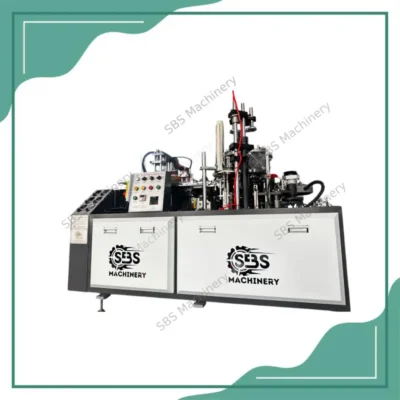
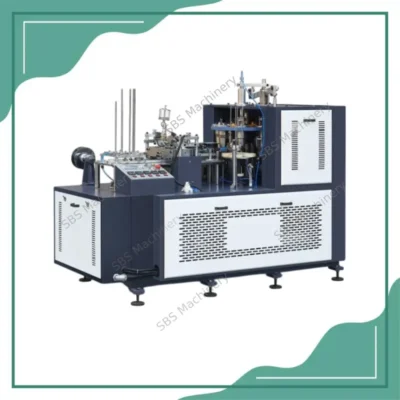
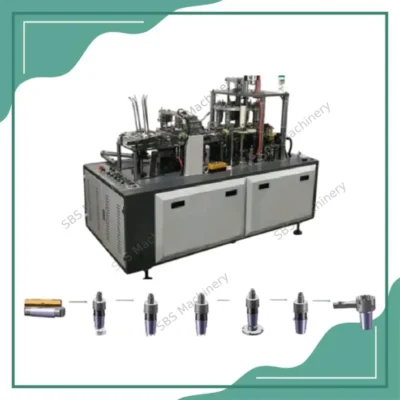









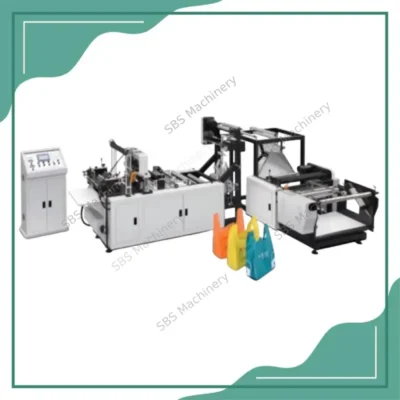

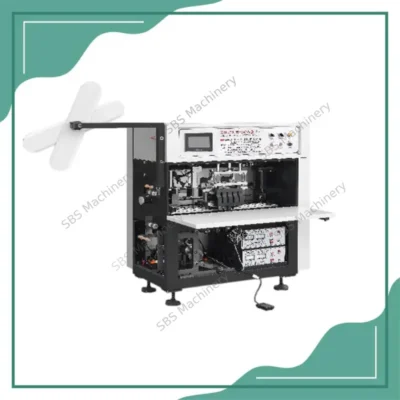
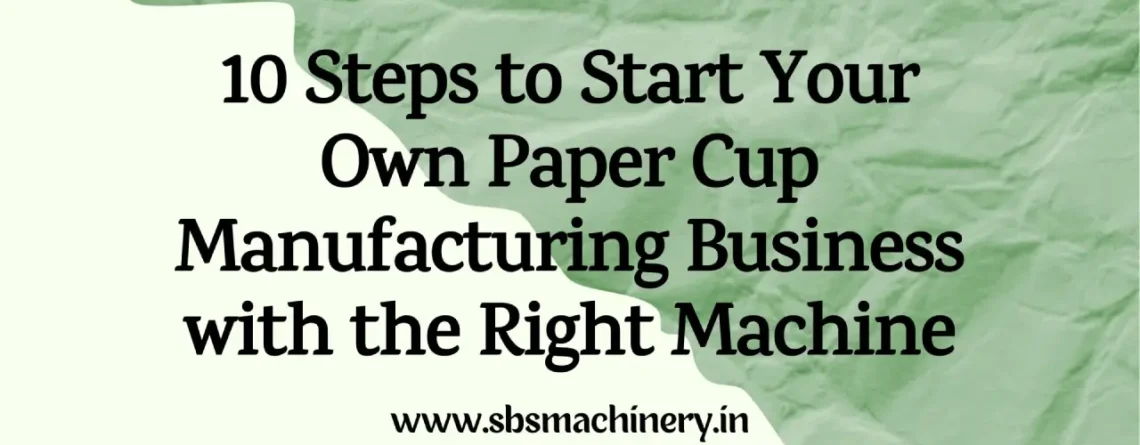


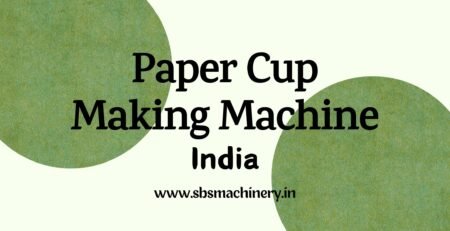

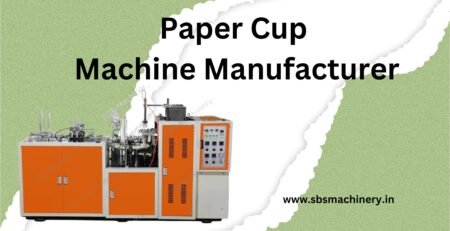




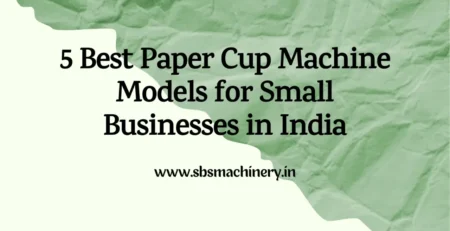

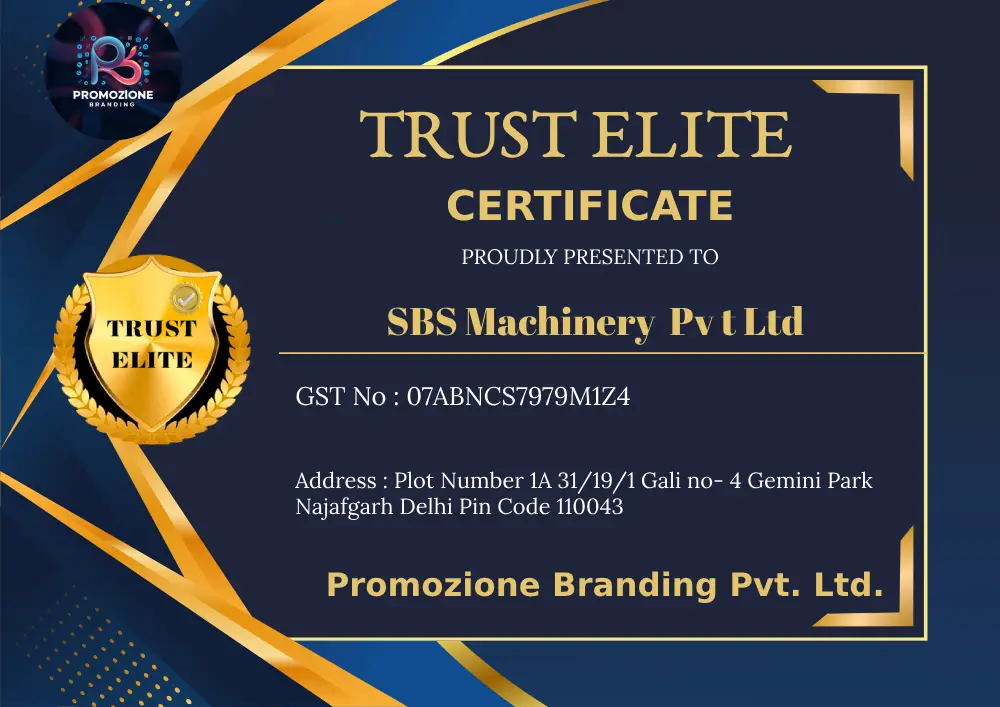
Leave a Reply